"A government for hire at a combat site."
Beautiful.
Thanks Angie.
| Randy Lindsay |
|
|
In response to this month's question for the Apocalypse Panel Angie Lofthouse offered what I think is probably the best response that could be given. I admit to being more than a little bit jealous that I hadn't thought of it.
"A government for hire at a combat site." Beautiful. Thanks Angie.
1 Comment
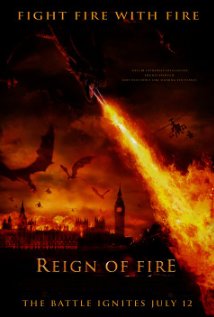 No fanfare this week. I’m going straight to this month’s question for the Apocalypse Panel. What defines an apocalyptic story? The easy answer is that an apocalyptic event at the center of the story is what defines entries to this genre, but is that really the case? More importantly for me, how far can I twist the setting of the story before it no longer falls neatly into the genre? Most of the classic apocalyptic stories have a distinct science-fiction bent to them, giving me reason to wonder if this might provide the defining aspect. Damnation Alley involves the last of the Hell’s Angels crossing the post-war America and facing giant Gila Monsters, mutated cockroaches, and rogue biker gangs that rule the countryside. That is what comes to my mind whenever an apocalypse is mentioned. Then you have stories such as Fred Saberhagen’s Empire of the East which is set in a future where, through science, a nuclear war is averted and magic is introduced into the world. Even though that sounds like science-fiction the first book reads like fantasy. Is this an apocalyptic story? If you want to pick nits, then yes. Unlike the movie Wizards, which has a strong blend of science and magic to create its apocalyptic world, I feel that Saberhagen’s novel rests squarely in the realm of fantasy. Reign of Fire is clearly an apocalyptic story set in the modern age, but is caused by the resurgence of dragons. Perhaps my thoughts that stories in this genre must have a sci-fi element are ill-conceived. What makes this movie work in a genre that seldom features fantasy? During recent years, a new element in the genre has risen in popularity. Zombie apocalypse stories have brought clear horror elements to what was once a sci-fi haven. World War Z uses a science-fiction storyline, but treats it as a horror story. Don’t get me wrong, I love this. Blurring genre lines opens all sorts of wonderful options to the creative writer. With fantasy and horror both represented as part of viable apocalypse stories, perhaps the key element that defines this genre is—us. Only those tales that place us in the path of disaster seem to fit. Either in the present or in the reasonably near future, as long as our society can be recognized amid the destruction that ensues it appears to qualify as an apocalyptic story. Now that I have that resolved, maybe I write an article on blending some non-traditional elements into an apocalyptic story. Doesn’t that sound fun? Oh, I can hardly wait to experiment with that concept. See you all next time. Last week I discussed:
What is the most important element in an apocalyptic story? Here are the responses from the rest of the panel. Tim Malone offered an excerpt from his upcoming book, Red Sky, that involves meteors striking the Earth. I felt that the following section summed up an important element of an apocalyptic story. “There won’t be any help,” David said when Stan came back. “What do you mean,” Cynthia said. “There are way too many scenes like this all over the city. Think of the movie theaters, the restaurants and pizza parlors. What about the malls, the people at the baseball game, in the hotels, the homeless on the streets, the tourists and the private homes? Any decent apocalypse is going to leave people in a position where they have to save themselves. And maybe that is really the heart of this genre—self-reliance. That’s scary if it were to actually happen to us, but it makes for great reading. I recommend that you follow the link over to Tim’s blog and read the rest of the excerpt for yourself. Wayne Roux suggests that it is the “reminder of the insignificance of man.” Wow. That’s some pretty heavy thinking right there. Are apocalyptic stories just updated fairy tales that teach the proper place of man in the universe? Man may think that everything revolves around us, but the truth is that we are just one small speck in the cosmos. I think Wayne did a great job of answering the question on his blog. Check it out. Angie Lofthouse summed it up in one word – Hope. And that is certainly the reason I wrote The Gathering: End’s Beginning. During the troubled times we are currently facing and will be facing, I want people to have hope. Check out what Angie had to say on her blog. I think you’ll enjoy it. What do all of you think? Feel free to leave a comment that answers this month’s question. I’d love to hear a few extra thoughts on the subject. It’s been five months since the release of The Gathering. Since then I’ve done a fair amount of marketing. Dozens of people have asked me to classify the story. During my last book signing a little ditty started running through my head whenever someone asked me what kind of book it was and it goes something like this.
(Sung to the tune – House of the Rising Sun, but The Animals.) Oh, authors, tell your children Not to do what I have done Set your book in an off genre And marketing won’t be fun I have struggled to define the correct category for The Gathering. Here are the genres in which it might fit with a few comments about each. I’d love some suggestions from my readers. General Fiction – This seems to be the category that books are placed in when no one is sure how it should be labeled. It’s a generic pool of titles without much in common other than the fact that they didn’t fit anywhere else. I’m just not convinced that The Gathering is the sort of book people are expecting when they peruse this category. Speculative Fiction – For the most part this the how I’ve classified The Gathering. It definitely fits into the Speculative field. One reviewer listed the book as “Reality Speculative Fiction” and that is probably the most accurate classification that I have found so far. The problem with that it is not really an accepted category and then I have to explain the genre as well as the storyline. In a way this feels like the General Fiction version of the Sci-Fi world. Sci-Fi – I love this category. This is what I normally write and The Gathering contains some slight element of the genre. The story is set in the future—albeit the near future—and is in fact an apocalyptic tale in the making, which falls into the category of Sci-Fi. Unfortunately, without any aliens from another dimension, space ships, or high-tech gadgetry that hasn’t been invented yet my book doesn’t read like Sci-Fi. Action / Adventure – My normal writing style includes a lot of action and a fair amount of adventure. The main story of a typical family in a tough situation doesn’t really cry out for this classification, but the Calvin McCord storyline does. My concern for using this genre is that readers may expect a fast-paced trek through exotic locales and that is not what they will get. Christian Fiction – Since the story involves an LDS family as they respond to the prophesied events leading up to the Second Coming this is a fair category to place The Gathering. But does this label set an expectation of a story that has a lot of warm-fuzzies intermixed with a 300 page sermon? While there is nothing wrong with that my intention was to get my readers to think about how they would react to an apocalyptic event. Thriller – The definition of this genre is a story that uses suspense, tension, and excitement as its main elements. Guilty as charged. At least, that was my intent when writing The Gathering. Here again, I feel that readers will have a different expectation when they see mention of this genre. Perhaps I’m doing myself a disservice by comparing it to North By Northwest, Cape Fear, and Play Misty For Me, but I don’t feel comfortable placing it in this category. Pre-Apocalyptic – Since The Gathering doesn’t fit nicely into any of the categories that are available I decided to make a new one. Imagine that—me making something up. This brand new category deals with stories that take place in the days and years prior to an apocalypse. In this case it involves an event that hasn’t happened yet, but I think it would work just as well with great tragedies from our past. A tale of a Jewish family in Germany just prior to WWII would be an example. Even though I created this category specifically for The Gathering I feel that it could work as a legitimate genre. Post-Apocalyptic tales already exist so why not this? Have an opinion on what I said? Leave a comment Since Sunday was Mother’s Day I felt it appropriate to interview Becky Williams. Not only is she a viewpoint character in The Gathering, she is the mother of six children: Robert, Sarah, Lucas, Jesse (twin 1), Elizabeth (twin 2), and Cody. Q1: What is the best thing about the Apocalypse? A1: Really? Does your mother know you ask silly questions like that? If I had to pick one positive element out of this horrible situation it would be that it forces you to think about what is truly important in life. Everything else gets cast aside. Q2: Several readers have mentioned that you are some sort of Super-Mom; strong, selfless, and highly spiritual. Are you too good to be real? A2: Of course not. I think the novel just happen to capture me at my finer moments. What the readers didn’t get to see where the times when I broke down and cried over some minor problem because I was having a bad day. I mean, in a book about the apocalypse who wants to see me dealing with bickering kids, a dirty house, and a migraine? Q3: You and Sarah look a lot alike. Does anyone ever get the two of you confused? A3: * Do you mean other than you? Yes, it happens all the time. Sarah is the child that is most like me. She is very strong-willed and definitely her own person. That can be good if you are pointed in the right direction because you allow yourself to be sidetracked. But it makes it difficult to change your life around if you’re headed the wrong way. * I swapped the names for Becky and Sarah when my beta readers mentioned that Becky worked better as a name for an adult woman. Q4: Now the big question. Which of the kids is your favorite? A4: I bet you’re expecting me to say “all of them” and I do, but that’s not my answer. It really depends on the individual day. When I got letters from Robert while he was on his mission then Robert was my favorite. Two weeks ago the twins stopped bickering long enough to arrange a date night for John and myself. On that day—no, for that week—they jointly held the top spot in my heart. Each of my children has their moment in the sun where they shine ever so brightly. When they do my joy in them is truly full. If you have any questions for Becky that you’d like answered just go ahead and post them in the comments section and I will make sure she gets to them as soon as her busy schedule allows. 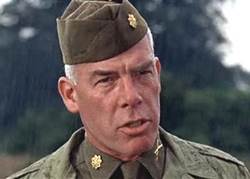 Last week I announced a new feature – Bonus Gatherings – and today I want to present another one: Behind The Gathering. The idea for this feature is to share what went on behind the scenes as I wrote the story. Since a lot of this may necessitate trips into my mind it may be a scary segment to read. The question I’m asked most often at author events is whether the characters in my stories are based on real people. That is followed by looks of disappointment when I tell them that they are not. My characters are fully figments of my imagination. I suppose it doesn’t help that I continue on and explain that my characters start off as nothing more than a plot need. If I’m writing about an LDS sponsored space program intended to kick off the last great pioneer trek then I might decide I need a character that promotes the thrill and excitement of exploration. I’d make it an energetic tween, probably a girl because both of those choices open several interesting story possibilities. Apparently, that is not what my fans want to hear. Perhaps they are hoping they can meet the real-life inspiration for the characters in my stories. And in the future I might start doing that. Maybe I should just avoid sharing my very clinical approach at character creation or at least focus on the thrill that I get as I watch how the characters develop during the writing process to become what passes for actual people. Calvin McCord is a good example of this. He started out as a need. I needed a character with a top-down look at the situation. I needed a character who would know what was going on not only in the United States government, but the political and military institutions around the world. So I made him the Secretary of State. Once I had a character in place to observe the destruction of the Constitution and the quick unraveling of civilization I needed to mold him into a heroic figure that my readers would root for. Not only did I make him an old soldier still wanting to serve his country, but I did my best to craft him as the last honest politician. Then I gave him friends, interests, personality, and some history. Most of that flowed out of me a piece at a time as I need the information to complete a scene. In the end it all adds up to a reasonably life-like representation of a person. Of course, the follow-on question about characters is normally: If I had authorization to cast all of the characters for a movie version of The Gathering, who would I pick to play Calvin McCord? The first image that came to mind was Lee Marvin. His voice and his demeanor are all I could hope to expect from my favorite character in the story. But that was really a predictable choice. 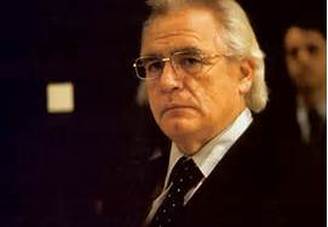 As I thought about it more, I liked the idea of using Brian Cox. Especially as he appeared in The Bourne Supremacy. And there is this month’s behind the scenes look at The Gathering. I encourage you to leave a comment and let me know what you thought about this segment. Do you want more? Should I stop? Does this shatter your impressions of my characters? Or do you have someone specific that you would like me to discuss next time?  I have several new features I plan to introduce over the next few weeks. The one for today is Bonus Gatherings. It may sound like a contest for my readers to run about nilly-willy collecting bonuses where ever they might find such things, but in reality these will be short bits of fiction that are not found in the book. They are a bonus to my readers to help tide them over until the second book in the series is finished. As soon as I decided to do this, Calvin jumped right up and asked to be first. And so he is. This is a small slice of life that takes place during the six months between the two novels. Enjoy. Small white clouds of vapor puffed away from Calvin. They seemed out of proportion to the slow, labored steps he took. This was supposed to be jogging, but it felt more like a fast-paced walk, with all the pain of full-out sprint thrown in at no extra charge. Too many hours behind a desk had packed on pounds that he wanted to shed. His doctor kept telling him to give up the tacos and beer lunches, but Calvin rejected the advice. Some days, that was the only thing that got him through the endless hours of politics he had to wade through in his service to his country. A twinge shot up from his knee with each step he took; a souvenir from his time in Panama. He liked to tell everyone that it was an old battle-injury, but the truth of the matter was that he had twisted his knee running out the back entrance of an off-limits cantina. Thinking about it almost brought a smile to his face. That had certainly been a better time in his life. Behind him, the twin echoes of his Secret Service escort slapped in rhythm with his own steps. They reminded him that he wasn’t alone. Where ever he went the black-suited agents followed him. As much as Boggs insisted that they were there for his protection, Calvin couldn’t shake the feeling that they were more spy than defender. In fact, the two agents, more than anything else, were responsible for the early morning jaunts. The constant surveillance of him drove Calvin to seek confirmation of his goals. As if on some cosmic queue Calvin ran past the last of the buildings that blocked his view of the Washington Monument. Another couple hundred and he panted to a stop. Tall. Slender. Majestic. It pointed towards the heavens. The pain in his knee and the struggle to catch his breath both dropped from his thoughts, replaced by the sense of wonder that seeing this monument always instilled in him. The Founding Fathers had certainly gotten it right when they decided, “In God We Trust.” 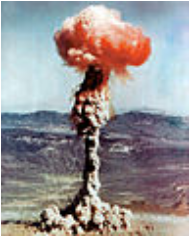 It’s been a month since the Apocalypse Panel started and the world is still here. Oh well, who knows what could happen during the next thirty days? And if the answers to our first question are any indication then we could be facing horrible destruction from a rogue planet, the outbreak of a long-frozen virus, collapse of the dollar, or World-War III. Maybe even a scenario where the passing of a large planetary mass cracks open a glacier, releasing a dormant virus that creates a murderous rage in people, that then results in a war and causes the collapse of all economies. Yeah, that is probably taking it a bit too far. Let’s just move on to this month’s question for the panel. What draws you to write apocalyptic stories? For me, it has been a lifelong interest in the genre. My favorite book is Damnation Alley by Roger Zelazny. I read it when I was ten. I’ve read it five more times since then and I don’t generally read books more than once. What is it that I like about that book? Giant, mutant Gila Monsters. Murderous biker gangs roaming the countryside. And making a trek across the ruined landscape of America in armored all-terrain vehicles. That’s what I call entertainment. However, all of those are just the trappings of the genre. At the heart of almost all the post-apocalyptic stories that I’ve read is the desire to put things back together. It is the never-give-up attitude of human heroes as they fix our broken society that makes those stories special. My reason for writing The Gathering was that I saw the potential for great calamity in our future and wanted to write a novel that gives people hope. If disaster strikes the United States, I want people who have read my story to be able to say to themselves, “If the Williams family can make it through this, then so can my family.” That won’t be the case if I write another apocalypse story I might use the genre as a canvas to explore death. Death of individual. Death of culture. Death of society. Even the death of mankind. More likely I’d use it as a backdrop for creation of crazy mutant creatures, bizarre political sects, and patchwork machines built from the remnants found in ruined cities. Beautiful stuff. What about the rest of the panel? What draws them to write about an apocalypse? Next week I will have links to all of their posts and a few comments of my own about what they had to offer. Let’s just hope the world hasn’t ended before then. 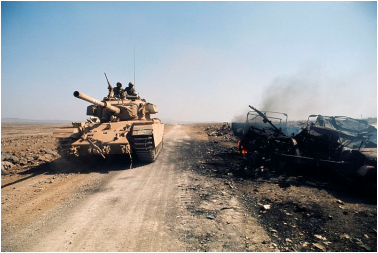 A couple of weeks ago, I mentioned a new feature that I call End Signs. Just as a reminder, the concept is that I take a look at recent headlines and then tell all of you how I would spin that into an end of the world story. This isn't intended to scare anyone with grim reminders of how dangerous a place the world has become. It is meant to be a fun exercise in story creation. The next two news items make that all too easy. Israel hits several Syrian military positions with air strikes. While that is nothing new, Israel engages in this sort of minor armed actions with regularity, what makes it scary is the current level of unrest in Syria. What if Syria had an atypical response and invaded with a large force? A war between Israel and Syria wouldn’t constitute the apocalypse. However, throw in another event, like the Israeli army killing a Palestinian teen and now you have a series of incidents capable of escalating the long simmering hatred of all parties involved into a global conflict. In fact, I can picture a Tom Clancy novel starting off with these two events. Both incidents, one after another, create high-conflict scenes that would establish a heart-pounding pace for the story. But then, the idea of World War III starting in the Middle East is a no-brainer. Oil fields. Centuries of racial hatred. People with quick tempers that are easily ignited to violence. Practically, any news story from this region can be pasted into the pages of a novel and sound quite realistic. 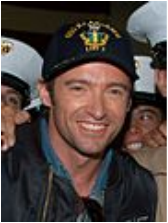 Now, for my second headline I’m going to flex my creative muscles. Plenty of mystery surrounds the disappearance of Malaysia Flight 370. My condolences go out to the families who have lost loved ones in this tragedy. In our high-tech world, it isn’t easy to make a plane vanish. We have radar that tracks the paths of thousands of aircraft each day. Starting a novel with an incident like this is sure to snare the reader’s attention. At first, they’re going to continue to read in order to find out what happened to the missing plane. Then once they find out that this is just the prelude to the end of the world, they will continue to read to see how it all turns out. That’s right. The apocalypse starts with the loss of an international flight. Within a month, three more have disappeared out of the skies. Six month’s later, no flight is safe. Even entire formations of military jets have begun to vanish. These are not terrorist hijackings. These are not incidents of catastrophic mechanical failure. This is how the inter-dimensional invasion of Earth begins. Dat-da-daaaaaa! How about we call it Limbo and cast Denzel Washington as the military strategist who has to figure out a way to conduct a war with another dimension? And we can get Hugh Jackman to play the burnt-out vet who leads a strike team into Limbo in order to destroy the dimensional gate, knowing that it’s a one-way trip for him and his team. 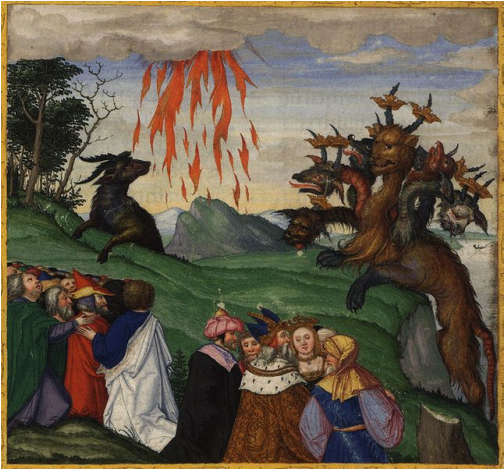 This week I am happy to announce the formation of the Apocalypse Panel. Why have just one author spouting crazy ideas about the end of the world when you can have seven of them? That’s right, I have been able to convince six other authors to join me in making all of you just a little more nervous about the current events we see on the news each night. What we plan to do is tackle a question each month that relates to the apocalypse. At first, these questions will come from within the group, but I am hoping that as the Panel gains popularity our fans will submit them instead. With seven us involved you can expect some interesting responses. Since you already know me let me introduce the other members of the Apocalypse Panel to you. Angie Lofthouse Angie went to school for particle physics, but ended up studying literature. This served her well in her career as a science-fiction writer. She lives in a little canyon and the base of the WasatchMountains and there plots the end of the world. Just in her books, not for really-real. Her stories have appeared in NFG AlienSkin, Amazing Journeys, The Sword Review, Dragons, Knights and Angels, Irreantum, and Unparalleled Journeys. However, it is her novel, Defenders of the Covenant, which landed her a spot on the panel. Wayne Roux Wayne brings an international element to the panel. He hails from South Africa and started writing when he was about 15. He has written two books and his novel, December Dead, depicts a mother and son fighting not only for their own existence, but that of the entire human race. He has two books out and a third on the way. Margot Hovely Margot was raised in Washington State, across the river from the Hanford nuclear facility. As a kid during the Cold War she had plenty of “duck and cover” exercises at school. So, she grew up thinking about the apocalypse more than your average child. Her first novel, Sudden Darkness, was published by Covenant in 2012 and the next the series, Glimmering Light, is due out later this month. Both of those stories had their birth when Margot wondered what it would be like if the Mormons made their trek back to Missouriwithout vehicles. Daron Fraley Daron is from Wyoming, but has moved around a bit since then. He has visited France, Switzerland, Canada, Mexico, San Juan, St Thomas, and the Bahamas. He describes himself as a writer by night and a Senior Data Center Engineer by day. It is rumored that he once fixed a gas clothes dryer with photocopier parts. A real-life McGuyver? You decide. He has two novels out Thirty-Six and The Thorn, but it is his novella, Son of Liberty, that landed him his spot on the panel. His focus tends to be on the political aspects of the apocalypse so expect some interesting insights in that area. Tim Malone Tim runs a blog that deals with a variety of LDS topics. His articles on The Last Days is the reason I asked him to participate in the panel. He is also working on a novel, Red Sky, that answers the question: what would we do if the sky actually fell? And for those of you, like me, who were wondering—Chicken Little is not the protagonist. Anthony Larson Anthony is a freelance journalist, a video producer, and a composer who brings something unique to the panel. He doesn’t write fiction. His books explain the relationship between science and the signs of the last days. And the Moon Shall Turn to Blood, describes the catastrophic changes that will occur during the upcoming apocalypse. These are connected to the prophecies dealing with the events of the last dispensation. It is the first book in the Prophecy Trilogy. That’s the panel. Now, for our first question. Which situation or event that is currently happening do you think most easily could result in the apocalypse? Check back next week to find out how everyone responded. And feel free to add your thoughts to the end-of-the-world smorgasbord as well. |
The ApocalypseHere are some of my recommendations for books dealing with the end of the world. Archives
April 2023
Categories
All
|